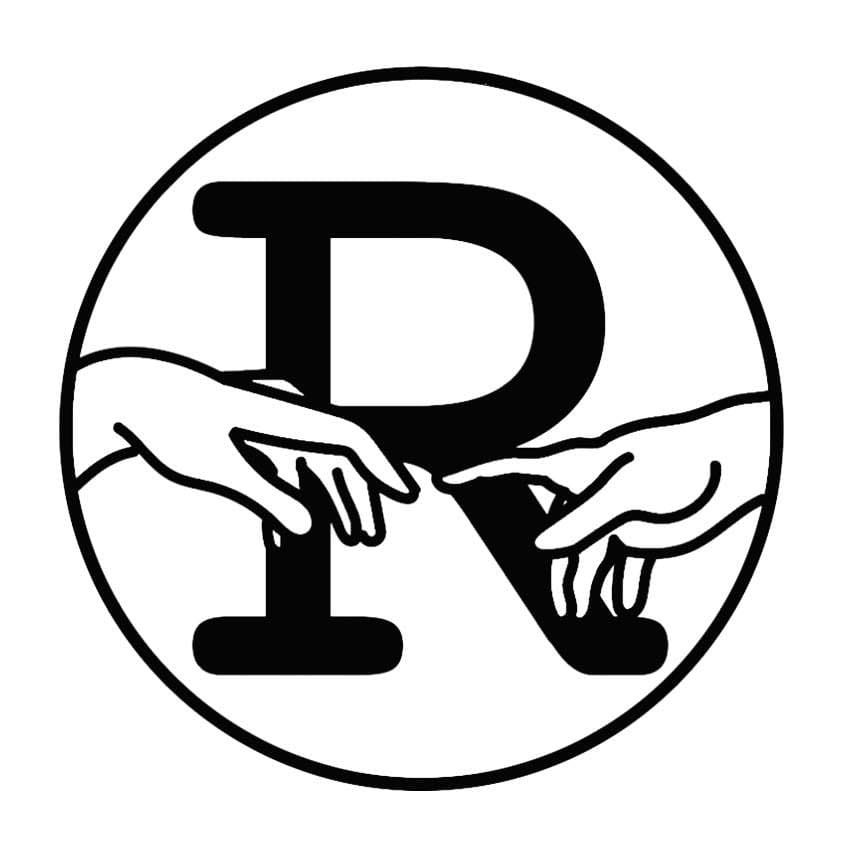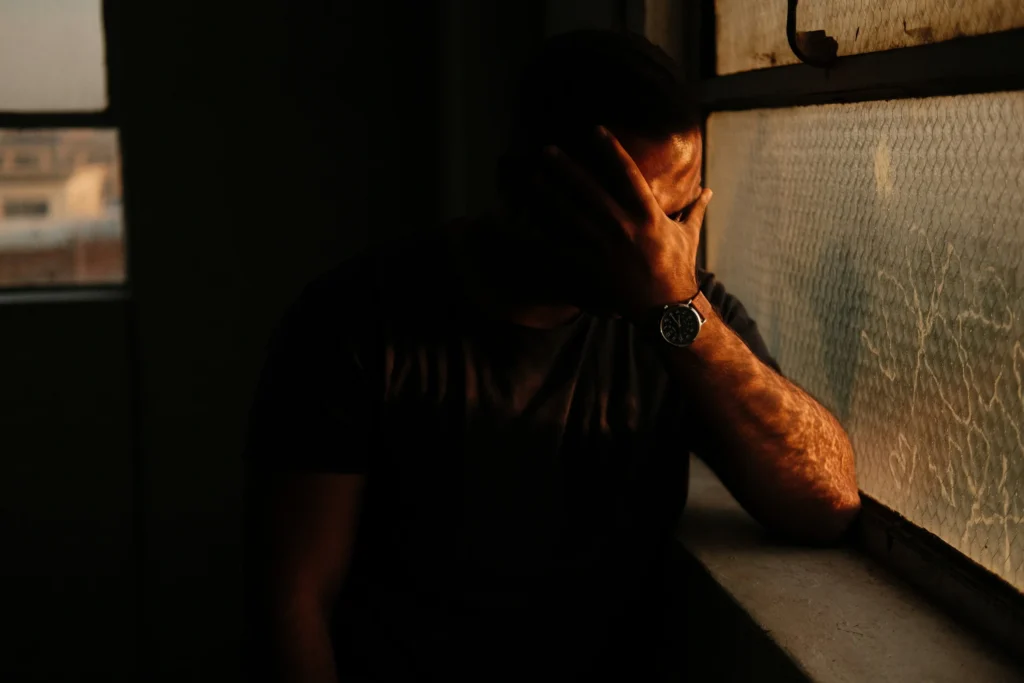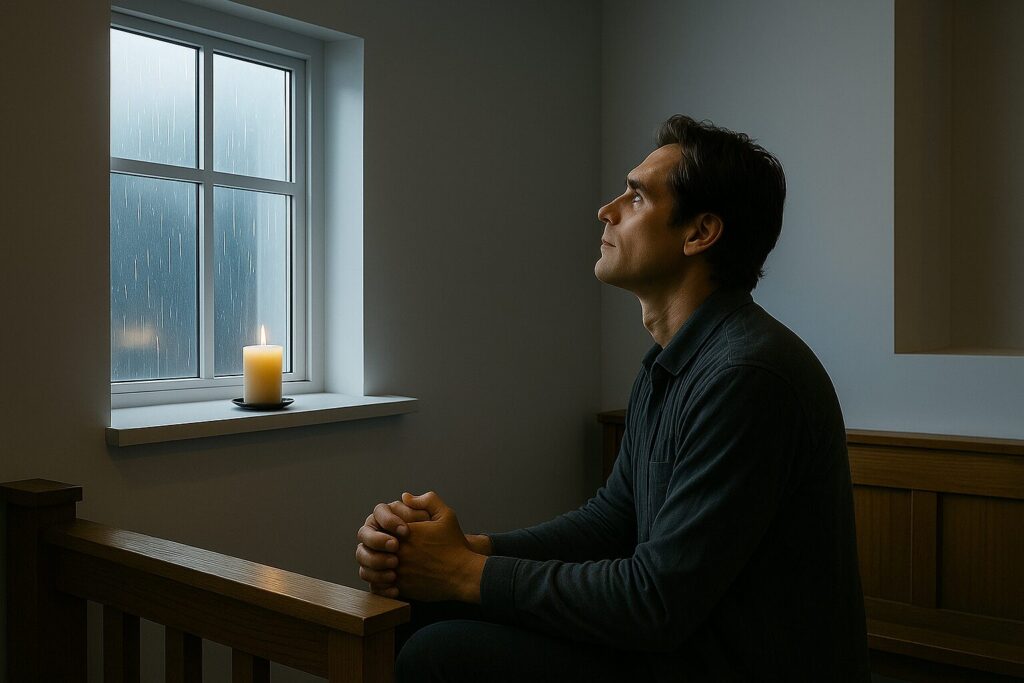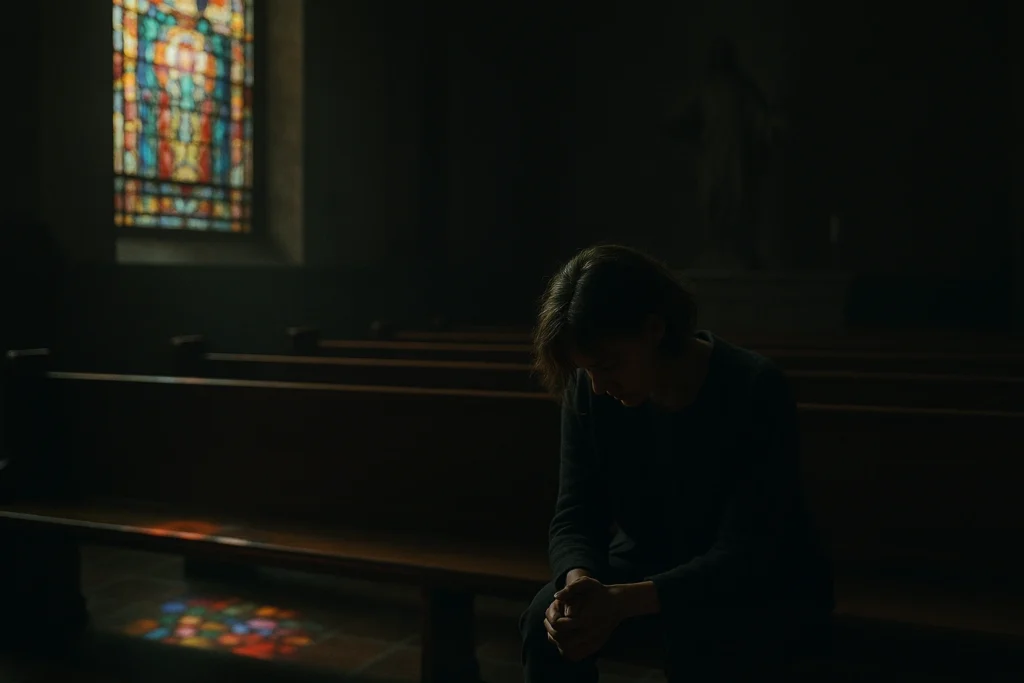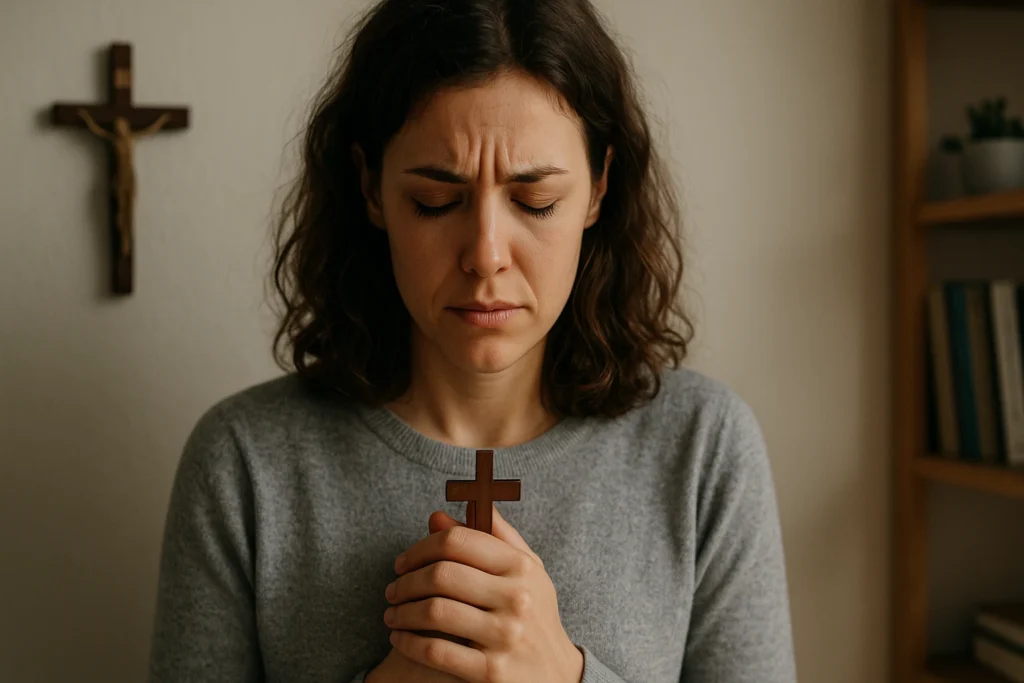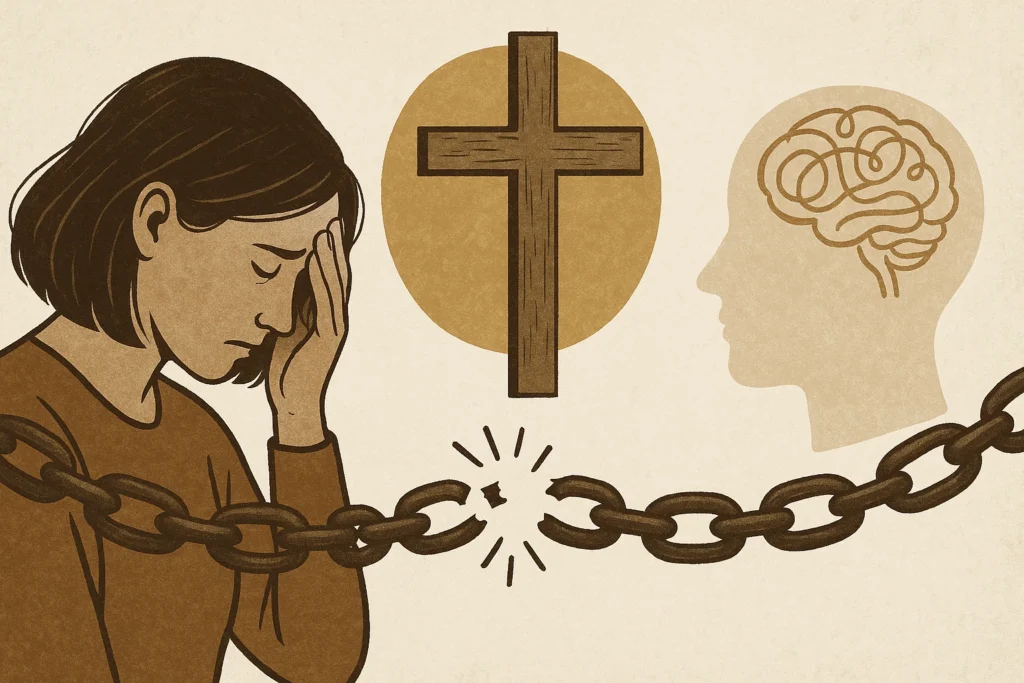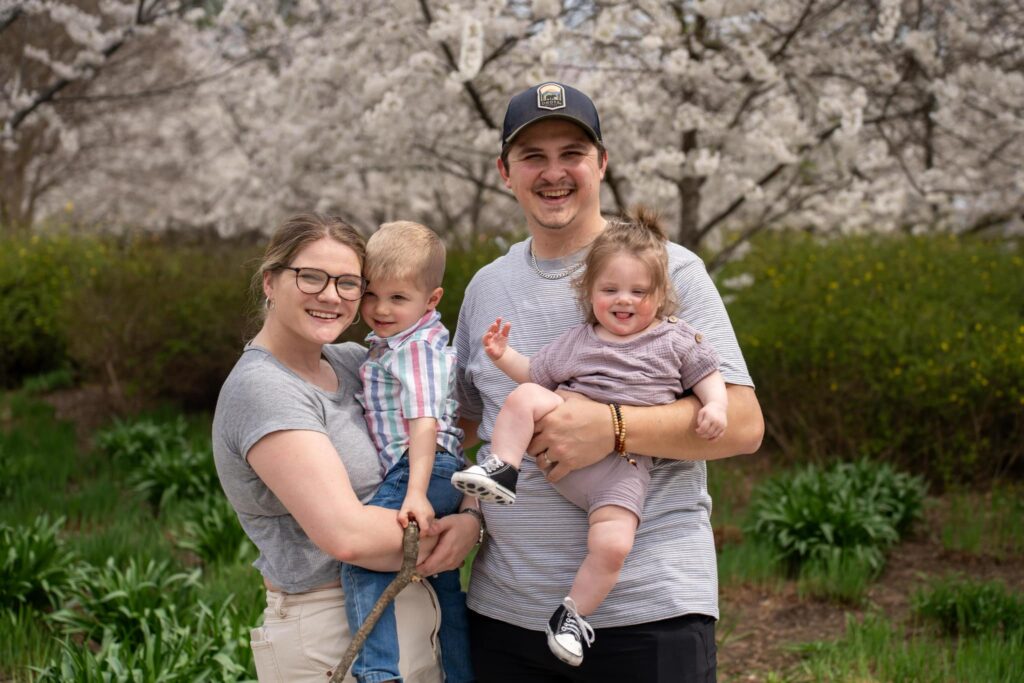Listen to Luke Johanni speak about this article on the Mind and Spirit Podcast!
Healing Scrupulosity and OCD: Explore how Catholic teaching and modern psychology together offer a path to healing.
OCD thrives on the pattern of obsession creating anxiety, anxiety causing compulsive impulses, compulsive behaviors bringing temporary relief, and then returning stronger obsession.
Hi friends! Welcome back to Mind and Spirit, the podcast where Catholic faith meets psychology and we explore what real healing looks like. I’m Luke Johanni, your Catholic-integrated therapist, and today we’re tackling something that I know all too well.
Maybe you’ve been there: you walk out of confession, and ten minutes later start wondering ‘Did I confess that sin the right way? Was I actually absolved? Maybe I should go back… just to be sure. I have to go back.’ Or you’ve prayed the same prayer a dozen times to make sure you said it right because you weren’t sure God ‘heard it right’. And to make sure your thoughts were correctly focused.
That was my story for years. And the truth is that it wasn’t holiness, it was scrupulosity. And today, we’re going to talk about what it is, why it happens, what the church says and most importantly, how you can find freedom.
Let’s Dig In!
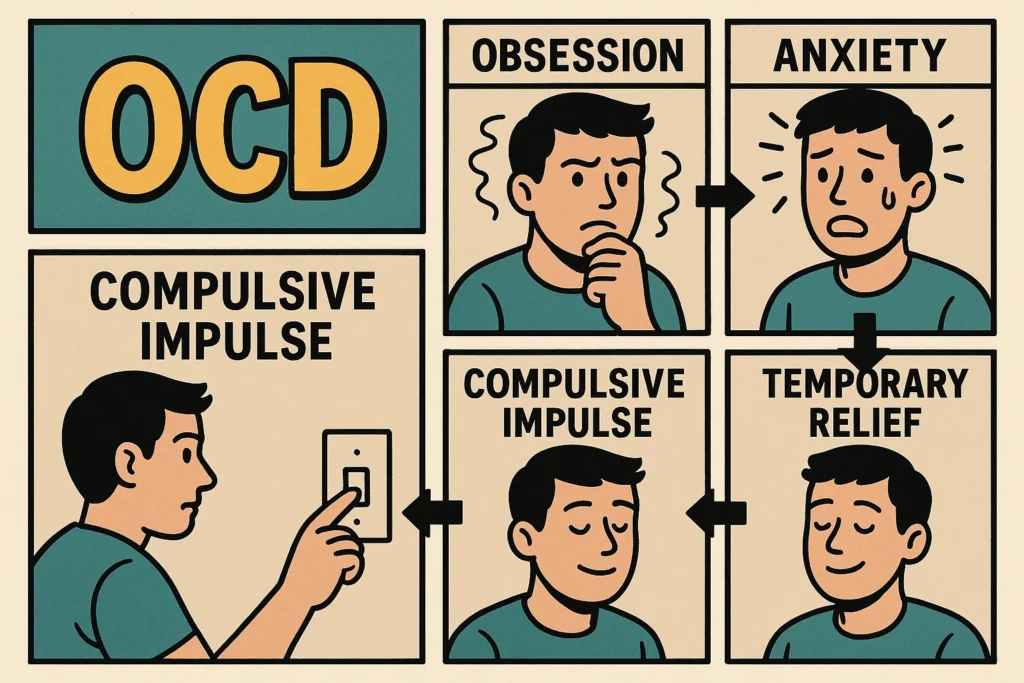
What is Scrupulosity
Psychologists call scrupulosity a form of OCD (Obsessive Compulsive Disorder) that focuses on religion and morality.
OCD: Obsessive Compulsive Disorder
OCD thrives on the pattern of obsession creating anxiety, anxiety causing compulsive impulses, compulsive behaviors bringing temporary relief, and then returning stronger obsession.
OCD is a mental health condition where two things happen:
- Obsessions, which are intrusive, unwanted thoughts, images, or urges that cause distress.
- Compulsions, which are repetitive behaviors or mental rituals someone feels driven to do in order to reduce that distress.
And again, as with all mental disorders, the struggle has to significantly impact your life satisfaction and ability to function.
So, for example, someone with contamination OCD might be overwhelmed by the obsession: ‘What if my hands are dirty and I’ll get sick?’ The compulsion is to wash their hands over and over, sometimes for hours, until they ‘feel right.’
Another example is checking OCD. In this the obsession could be ‘What if I left the stove on and the house burns down?’ The compulsion is to check the stove 20, 30, even 50 times before leaving the house.
The key is this: in OCD, the obsessions don’t line up with reality, but the anxiety produced feels very real. And the compulsions, though they bring momentary relief, “checking the stove one more time,” actually makes the cycle worse over time because the brain learns “When I get anxious, I have to do this ritual to feel okay.” That means the next time the thought shows up (and it always does), the urge to do the ritual is even stronger. Over time, the brain starts sending up more intrusive thoughts, because it has learned that compulsions get (your) attention. What was once one confession a week can spiral into multiple confessions a week, or even daily rituals that take hours.
So the relief is real, but short-lived. And it comes at the cost of reinforcing the very problem. OCD thrives on the pattern of obsession creating anxiety, anxiety causing compulsive impulses, compulsive behaviors bringing temporary relief, and then returning stronger obsession.
Scrupulosity
The International OCD Foundation defines it this way: ‘Scrupulosity is a form of OCD involving religious or moral obsessions. Individuals with scrupulosity are overly concerned that something they thought or did might be a sin or violation of religious or moral doctrine.’ (IOCDF)
And research shows that the same mental loops you see in OCD, like intrusive thoughts and ritualistic behaviors, happen, just with religious content (Abramowitz, 2014 model). For example:
- Instead of handwashing, it might be confessing the same sin again and again.
- Instead of checking the stove, it might be repeating a prayer until it feels ‘perfect.’
- Or maybe its saying 10 novenas at a time because one isn’t enough.
Two Mental Traps
Two mental traps show up often in scrupulosity. The first is called thought-action fusion (Abramowitz & Jacoby, 2015). This is the belief that simply having a thought is as bad as acting on it. For example, a person might think, “What if I cursed God in my heart?” and feel just as guilty as if they had actually committed blasphemy. Everyone has intrusive thoughts, but thought-action fusion makes those fleeting moments feel like real sins, even though temptation is not the same thing as consent.
The second trap is called inferential confusion (O’Connor & Aardema, 2005). This happens when the mind treats a possibility or a doubt as if it were already reality. For instance, someone may think, “What if I wasn’t truly sorry when I confessed?” and then act as though that imagined ‘what if’ proves their confession was invalid. Instead of trusting evidence (their intention, their memory, God’s mercy) they obey the doubt as if it were fact.
Result of Mental Traps
Together, thought-action fusion and inferential confusion keep the scrupulous person stuck. One makes thoughts feel heavier than they should, the other makes doubts feel more real than truth. And both combine to create a cycle of false guilt, endless reassurance-seeking, and deep spiritual exhaustion.
So, scrupulosity is not about someone simply taking their faith seriously. It’s about when the normal practice of faith gets hijacked by an OCD cycle of obsession and compulsion. So if you’ve struggled here, it’s not because you’re weak or faithless. And this is what we’re unpacking today.
Scrupulosity is a form of OCD involving religious or moral obsessions. Individuals with scrupulosity are overly concerned that something they thought or did might be a sin or violation of religious or moral doctrine.
Where Does Scrupulosity Come From?
If someone grew up in a religious setting where sin, fear, and punishment were emphasized heavily, but mercy and grace were not, it can set the stage for an anxious, rigid conscience.
Now, Where does scrupulosity come from? The short answer is, we don’t fully know. Like other forms of OCD, there are biological and genetic factors that play a role (McLean Hospital). Some people may be more wired toward anxiety or intrusive thoughts simply because of their brain chemistry. Personality traits also add to the picture. Perfectionism, an intolerance of uncertainty, and an exaggerated sense of responsibility are all common in people who struggle with scrupulosity.
But environment matters too. For many, scrupulosity takes root in the way faith was taught or absorbed. According to research from Antioch University, if someone grew up in a religious setting where sin, fear, and punishment were emphasized heavily, but mercy and grace were not, it can set the stage for an anxious, rigid conscience (Painley, 2025).
I can personally attest to this from my own life. As mentioned in the first Episode, I grew up in this type of community. And it played a heavy role in my own struggles with scrupulosity. The same research found that catechesis or faith formation that overemphasizes guilt without balancing it with the love of God has also been shown to heighten scrupulous tendencies.
So, scrupulosity develops from a mix of things, biology, personality, and environment all interacting together. But here is an essential point: it is not a moral failure. It is not proof that you don’t trust God enough. It is not simply a lack of faith. Scrupulosity is a condition that can arise even in the most devout believer. Yet, with the right kind of help (both clinical and spiritual) it can be healed.
It is not a moral failure. It is not proof that you don’t trust God enough. It is not simply a lack of faith. Scrupulosity is a condition that can arise even in the most devout believer.
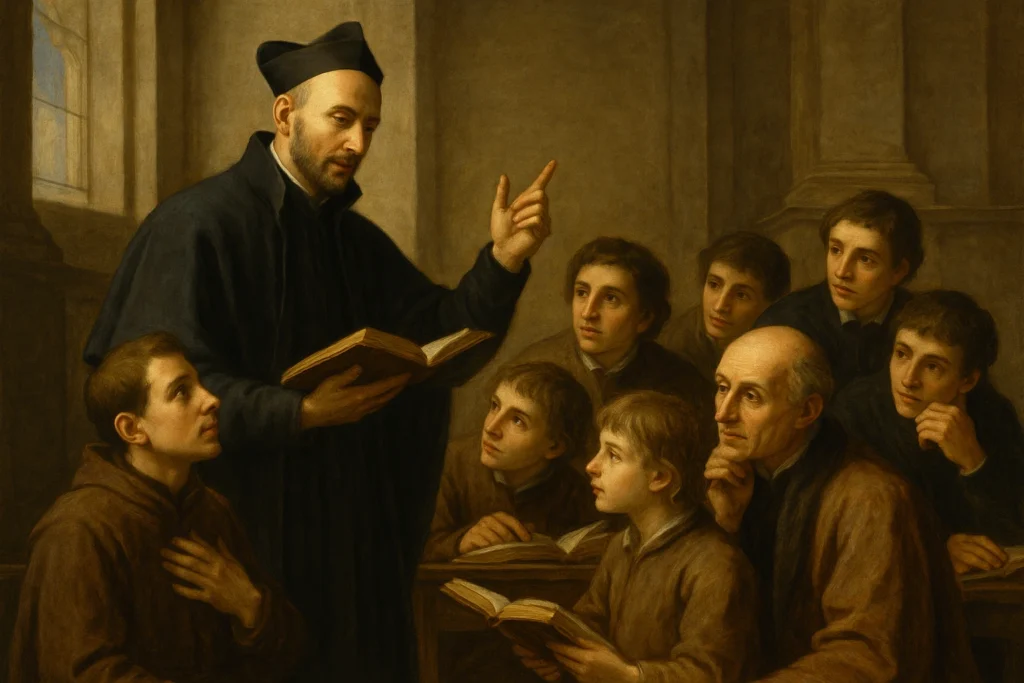
The Wisdom of the Church
His advice was simple but wise: choose one confessor and obey their direction completely, because jumping from priest to priest only feeds the cycle.
What does the Church have to say about all this? Well, the Church knew about scrupulosity long before psychology ever gave it a name.
Wisdom from the Saints
History is full of saints who struggled with this very issue. Saints like, St. Alphonsus Liguori was deeply scrupulous in his early years, constantly tormented by doubts about sin and confession. Later in life he came to recognize that scruples were not from God, who is the Spirit of peace, and he became a source of encouragement for others.
St. Ignatius of Loyola, founder of the Jesuits, also battled intense scruples. His advice was simple but wise: choose one confessor and obey their direction completely, because jumping from priest to priest only feeds the cycle. (Which often happens for those with scrupulosity.)
And St. Thérèse of Lisieux, who struggled with fears of offending God, found freedom in choosing trust over fear. She said these famous words: ‘I choose everything.’ She wasn’t speaking about possessions or earthly pleasures. She was responding to her fear of offending God and her scruples about whether she was doing enough.
Thérèse’s answer was radical simplicity. Instead of getting trapped in the endless cycle of weighing options or second-guessing her choices, she surrendered all of it to God. “I choose everything” meant, “Lord, I choose all the paths of love You set before me. I refuse to live in fear that I might miss one. I trust that Your mercy will complete what I cannot.”
It was her way of breaking free from the perfectionism of scrupulosity. By resting in God’s love rather than her own actions, she discovered peace. This became the heart of her “Little Way;” not striving for grand achievements, but trusting that every small act of love, done in faith, is enough for God.
The Catechism and Resources from the Church
The saints, the Catechism, and pastoral wisdom all echo the same truth: God is not calling us into endless anxiety but into freedom and trust in His love.
Beyond these examples, the Church has offered practical pastoral tools. One of the most well-known is the Ten Commandments for the Scrupulous, a set of guidelines that remind us, among other things, not to repeat sins in confession once they’ve been absolved, not to confess doubtful sins, and not to shop around for different answers from multiple priests (Scrupulous Anonymous PDF). These rules are simple but powerful, because they help create healthy boundaries for those who feel trapped by endless spiritual doubt.
Some pastoral writers have emphasized the same principles. Fr. Ernest Latko once wrote that the scrupulous need charity, consistency, and prudence (Catholic Culture). A confessor or spiritual director must avoid reinforcing compulsions while still offering reassurance of God’s mercy.
The Catechism itself points in this direction too. In CCC 2090, it teaches that hope in God’s mercy is a theological virtue. And again in CCC 1458, that confession is indeed valuable but not to be distorted into a compulsive ritual. Kevin Vost of Catholic Answers has even described scrupulosity as “a distortion of the virtue of prudence, where the desire for holiness becomes enslaved to fear.” (Catholic.com)
So, the Church does not dismiss this struggle. It recognizes that scrupulosity is real, that it robs the faithful of peace, and that God’s mercy is always greater than fear. The saints, the Catechism, and pastoral wisdom all echo the same truth: God is not calling us into endless anxiety but into freedom and trust in His love.
Scrupulosity is a distortion of the virtue of prudence, where the desire for holiness becomes enslaved to fear.
The Real Pain of Scrupulosity
It is a crushing cycle, not because God is harsh, but because your mind has been caught in a false fear.
What is the reality of someone who struggles with this? If you’ve ever had scrupulosity, you know how heavy it feels. On a personal level, I have felt your pain. Faith stops being a gift and begins to feel like a prison. Prayer, which should be a conversation with God, turns into a checklist of words and rituals that never feel quite right. Confession, meant to be a sacrament of healing and mercy, becomes exhausting (sometimes happening multiple times a week, or even multiple times a day), yet never bringing peace. Instead of walking away with joy, you find yourself walking away with more questions, more doubts, and more fear.
Over time, the joy of being a beloved son or daughter of God gets drowned out by the constant sense of false guilt and even shame. Every thought feels dangerous. Every action feels questionable. And instead of you feeling closer to God, you feel further away, convinced that God is disappointed, angry, or withholding forgiveness. It is a crushing cycle, not because God is harsh, but because your mind has been caught in a false fear.
That’s the reality of scrupulosity. But the good news is this: you don’t have to stay there. Healing is possible, and God does not want you trapped in a religion of fear. He wants to lead you into freedom.
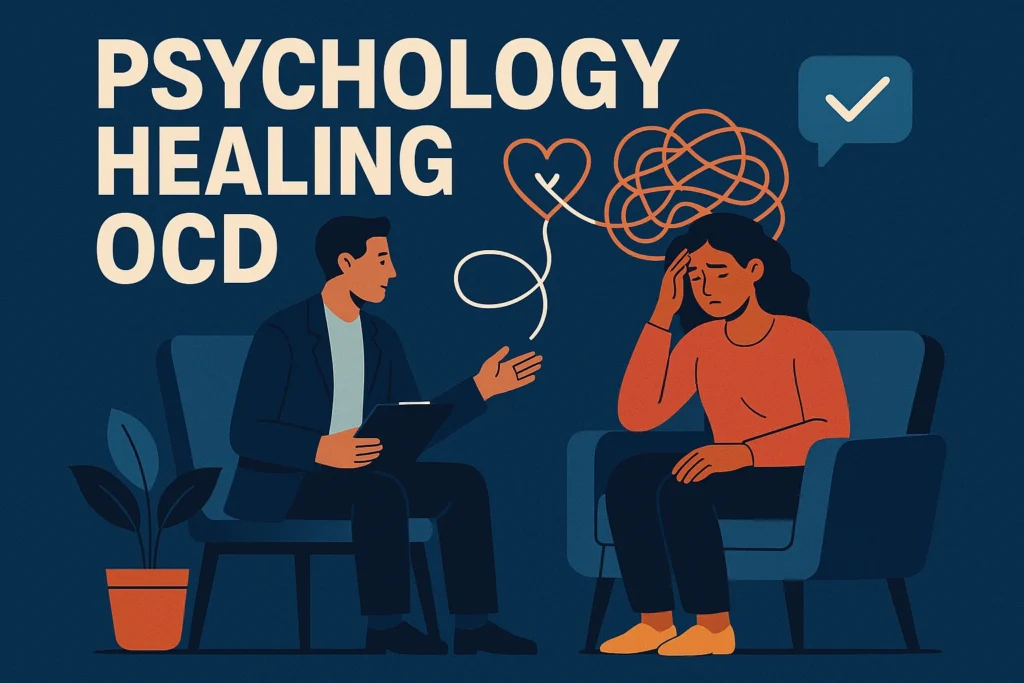
The Healing Path of Psychology and Faith
Healing involves retraining the brain through therapy and relearning how to trust God’s mercy through faith. When those two come together, freedom is possible.
So how do you move toward healing? The best path combines therapy and spirituality working hand in hand. Clinically, the gold standard treatment for OCD is something called Exposure and Response Prevention, or ERP combined with CBT (Cognitive Behavioral Therapy).
Exposure and Response Prevention (ERP)
The ERP approach invites a person to face the anxious thought (like, ‘Maybe I offended God’ without running to a compulsion, such as confessing again or asking for reassurance) (VerywellMind, 2023). At first the anxiety will rise, but over time the brain learns that the anxiety can fade on its own without acting out the usual ritual. It’s a way of breaking the destructive cycle of OCD.
Cognitive Behavioral Therapy (CBT)
Cognitive Behavioral Therapy helps by challenging distorted beliefs, for example, teaching that having a thought is not the same as committing a sin (Abramowitz, 2014). For certain individuals, Acceptance and Commitment Therapy, or ACT, is also needed (VerywellMind). ACT helps people make peace with the fact that thoughts will come and go without letting them dictate every choice. While also grounding life in deeper values.
Team Work
But healing is not only psychological, it’s also deeply spiritual. For this reason, I highly recommend working with both a specialized counselor and a confessor that has a clear understanding of scrupulosity. If you choose to work with a general therapist, you run a risk ERP may miss actual sinful issues. I would highly encourage working with a faith based counselor that specializes in this area because this will lead to ERP being used in a productive moral way that promotes resisting the compulsions that disguise themselves as religious duties. When there is a rational concern, a confessor can be called on to provide clear spiritual direction. Together, a counselor and confessor form a team that helps protect both mental health and spiritual integrity.
Personal Spiritual Practices
Alongside professional guidance, there are spiritual practices that can nurture healing.
- Meditating on Scripture like Romans 8:1, ‘There is now no condemnation for those in Christ Jesus,’ anchors the heart in God’s mercy.
- Short surrender prayers, such as ‘Jesus, I trust in You,’ can interrupt anxious spirals.
- Again, obeying one confessor, taught by St. Ignatius, prevents the confusion of multiple voices, which also builds trust.
- Eucharistic adoration, approached not as a ritual behavior but as simply resting in God’s presence, re-centers the soul on relationship instead of ritual.
- And using resources like the Ten Commandments for the Scrupulous (Resources) provide practical guardrails that help people stay grounded (Scrupulous Anonymous).
It’s also important to remember some cautions. Not every scruple is pathological, sometimes conscience really does alert us to sin. To our error. The difference is that authentic guilt will lead to peace, reconciliation, and growth, while scrupulosity produces endless fear, doubt, and despair. Healing involves retraining the brain through therapy and relearning how to trust God’s mercy through faith. When those two come together, freedom is possible.
A Closing Invitation
Friends, if scrupulosity is your struggle, I want you to hear this clearly: God is not a God of confusion but of peace, as Saint Paul reminds us in 1 Corinthians 14:33. Jesus Himself tells us that His yoke is easy and His burden is light (Matthew 11:28-30). That means the constant weight, the fear or the endless second-guessing; that is not what God wants for you. His desire is not that you live in fear of making a mistake, but that you rest in the security of His love and mercy.
You don’t have to remain trapped in this cycle. With therapy, the brain can be retrained so that thoughts lose their power. With faith, the heart can rediscover trust in a God who does not condemn but saves. Together, psychology and spirituality can lead to healing; restoring the joy of prayer, the freedom of confession, and the peace of being God’s beloved child.
Let me offer this prayer for you:
Lord Jesus, You are mercy itself. For every listener who feels trapped in fear, who doubts their forgiveness, or who feels they can never rest in Your love, I ask for Your freedom. Cast out fear with Your perfect love. Bring peace where there is confusion. And restore joy in their hearts as sons and daughters of the Father. Amen.
If this episode spoke to you, I’d love for you to subscribe to the podcast, leave a review, and share it with someone who may be struggling with scrupulosity or religious anxiety. Your support not only helps the show grow but also makes it easier for others to find hope and encouragement. And if you want more resources on faith and mental health, follow me on Instagram @LukeJohanni or visit our Resources page.
And if you have your own question that you’d like to hear answered on a future episode, head to my website and fill out the form on the Podcast page. I’d love to hear from you.
Let’s keep healing together.
Remember: God doesn’t want you living in a religion of fear. He invites you into a relationship of love. Hold on to that truth as you continue your journey of healing
How Porn Hijacks Your Life (and How to Break Free)
Authentic Masculinity: Strength Ordered To Love
The Silent Struggle of Men: Finding a New Strength
When God Feels Far: Why You Feel Abandoned and How to Find Him Again (Part 2)
When God Feels Far: Why You Feel Abandoned and How to Find Him Again (Part 1)
Healing Trauma: With Psychology and Faith (Part 2)
Healing Trauma: With Psychology and Faith (Part 1)
Healing Scrupulosity and OCD: A Proven Path of Faith
The Truth About Anxiety: One Size Doesn’t Fit All
Breaking Free from Shame: The Power of Faith and Psychology
Mind and Spirit: From Brokenness to Calling
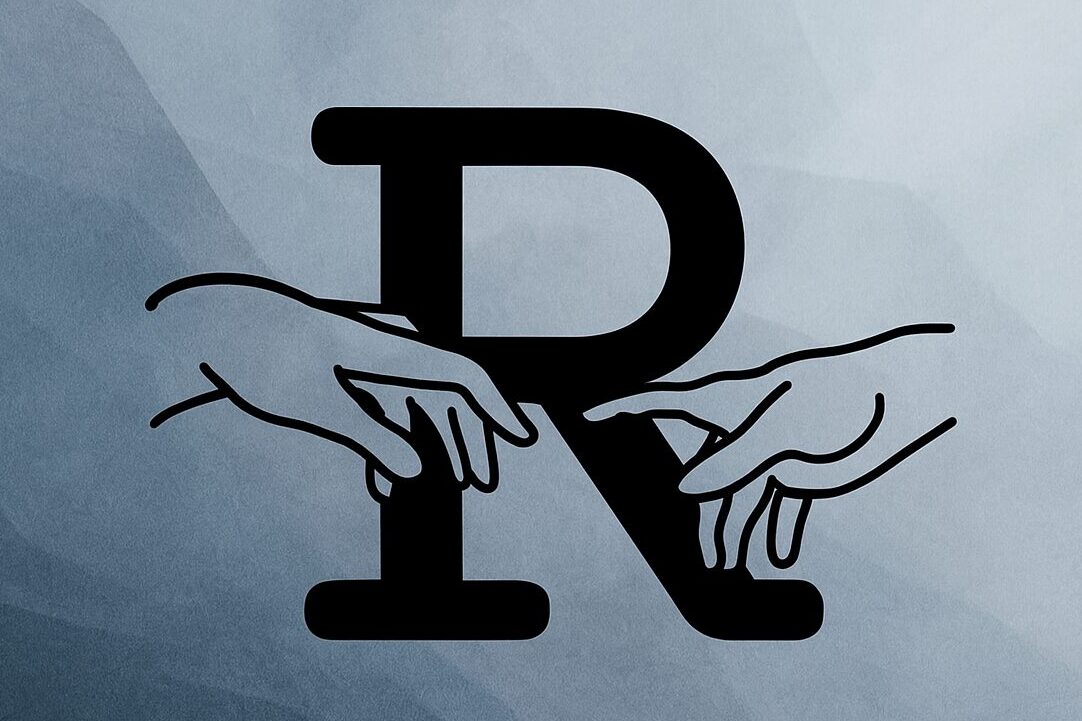
Have a question? Want it answered?
Submit your question below and it maybe answered on the Mind and Spirit Podcast and in this Blog. If you’d like a personal email response, please include your email.*
*Please note: Submitting a question through this form does not constitute therapy, nor is it intended to. It does not establish or initiate a therapeutic relationship. Learn more in our Privacy Policies.
Follow me on Instagram and Facebook or subscribe to the blog for weekly encouragement.
